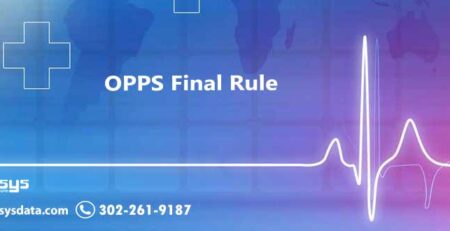Introduction
Understanding the details of Medicare coding and claims submission can be daunting for anyone. While accurate billing ensures fair reimbursement and uninterrupted patient care, billing mistakes can have significant consequences, leading to financial losses, claim denials, and even penalties. This article serves as a guide to help you avoid billing mistakes for Medicare and ensure smooth claims processing for your Medicare patients.
Common Billing Mistakes
1. Incorrect Coding
- Using generic codes like “psychotherapy, 45 minutes” isn’t enough. Choose specific codes that accurately reflect the services provided, duration, and complexity (e.g., CBT for depression with significant risk factors, 60 minutes).
- Time flies, but track it accurately: Be meticulous about documenting session duration. Billing for longer sessions than documented, or vice versa, is a red flag.
- Modifiers make a difference: Modifiers like “group therapy” or “initial evaluation” provide crucial context. Using the wrong modifier can result in claim denials.
To avoid coding errors, stay updated on specific Medicare requirements and coding instructions for mental health services. AMA CPT manual is the official source for procedure codes, with detailed descriptions and coding guidance.
2. Incomplete Documentation
Session notes should be detailed, capturing the presenting problem, interventions, progress, and treatment plan. Vague or incomplete notes raise red flags. Document sessions promptly and accurately, avoiding the pitfalls of memory-based notes later. Clearly explain the rationale behind your chosen treatment approach and goals.
3. Eligibility and Verification
Always verify patient eligibility before providing services. Ensure they have current Medicare coverage and no pending eligibility changes. If patients have other insurance, determine coordination of benefits to avoid duplicate billing and claim denials. Double-check your provider enrollment status and update any changes promptly.
4. Billing Process Blunders
Choose the correct claim form (CMS-1500 or UB-04) based on the service and beneficiary type. Incomplete or inaccurate forms lead to delays and rejections. All required signatures, including yours and the patient’s, must be present and legible. Submit claims within the designated timeframe to avoid processing delays and potential penalties.
Strategies for Avoiding Billing Mistakes for Medicare
Beyond the basic awareness of common billing errors, here are some specific strategies you can implement to prevent billing mistakes and ensure smooth claims processing for your Medicare patients:
Invest in Ongoing Education and Training
Stay updated on Medicare billing rules and regulations: Attend workshops, webinars, or online courses offered by reputable organizations like the American Academy of Medical Coders (AAPC) or the American Medical Association (AMA).
Implement Internal Auditing
- Conduct regular internal audits: Regularly review a sample of your claims to identify and address any coding or billing errors before they reach Medicare.
- Develop a quality assurance program: Establish clear protocols for claim submission, documentation review, and error correction.
- Utilize coding compliance software: Invest in software tools that can help identify potential coding errors and ensure accurate claim submission.
Leverage Technology and Automation
- Embrace electronic claims submission: Submitting claims electronically reduces processing time and minimizes errors associated with manual submission.
- Utilize EHR integration: Integrate your EHR system with your billing software to streamline data transfer and minimize manual data entry errors.
- Explore electronic prior authorization platforms: Utilize platforms that automate prior authorization requests and track approvals, reducing potential delays and denials.
Build Strong Communication and Collaboration
- Maintain clear communication with your patients: Ensure they understand their Medicare coverage and billing responsibilities.
- Develop strong relationships with Medicare contractors: Familiarize yourself with your local Medicare contractor and their specific requirements.
- Seek help when needed: Don’t hesitate to consult with a qualified billing specialist or Medicare billing consultant if you encounter complex issues.
Proactive Documentation
- Maintain detailed and accurate patient records: Ensure your documentation clearly reflects the services provided, diagnoses, and treatment plans.
- Document all coding and billing decisions: Keep a record of the rationale behind your coding choices for future reference, audits, or appeals.
- Scan and store patient documents electronically: Securely store patient records electronically for easy access and retrieval.
By implementing these prevention strategies and remaining vigilant about potential pitfalls, you can significantly reduce the risk of billing mistakes and ensure a smoother sailing experience with Medicare billing. Remember, the key is to be proactive, informed, and prepared to navigate the ever-evolving landscape of healthcare regulations.
To summarize,
Navigating the complexities of Medicare billing doesn’t have to be a daunting task. By prioritizing accuracy, utilizing resources, and implementing preventative measures, you can avoid billing mistakes for Medicare. Accurate billing isn’t just about avoiding errors; it’s about building trust, fostering a sustainable practice, and ultimately promoting the well-being of the individuals you serve.
Facing Challenges with Medicare Billing?
Medisys, your trusted partner in medical billing, takes the stress out of claims submission. Our team of experts, well-versed in Medicare regulations and coding, ensures accurate and timely claims processing, maximizing your reimbursements and minimizing claim denials. With Medisys by your side, you can focus on providing exceptional patient care while leaving the billing complexities in our capable hands. Choose Medisys for a smooth and efficient Medicare billing experience.
References:












